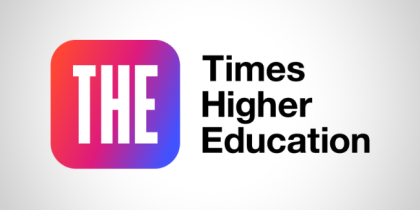
Seven in 10 professional staff members feel unable to step away from work during holidays, according to new research that warns that burnout risks “destabilizing” the work of colleges and universities.
While discussion of faculty burnout has been widespread, a paper published in Perspectives: Policy and Practice in Higher Education examines the underresearched “wide-ranging, multi-sector phenomenon” among administrative staff in the United Kingdom.
It found some “disturbing trends”: more than half reported regularly working more than 10 hours per day; more than 67 percent said they experience frequent, disruptive interruptions; and two-thirds worked during their free time.
The results show that 59 percent of professional services staff worked during scheduled annual leave, and a further 10 percent canceled their holiday entirely.
Relying on a relatively small core of professional staff members can undermine core services and impede an institution’s ability to deliver services for students, said Kelli Wolfe, deputy academic registrar at the University of Roehampton and author of the paper.

“As individuals experience burnout, many choose to leave their employer or the sector altogether, destabilizing the teams left behind and adding further financial burden to the already stretched purse in a continuous, self-defeating cycle,” she told Times Higher Education.
“Among colleagues, one often hears the sector relies on ‘adrenaline and goodwill’ to stay afloat. This is not a sustainable business model.”
Gail Kinman, visiting professor of occupational health psychology at Birkbeck, University of London, said staff burnout reduces productivity, slows down essential operations, limits the quality of student services, triggers high staff turnover and impacts academics’ ability to focus on teaching and research.
“Burnout among professional services staff will significantly disrupt the overall functioning of the institution,” she added.
The study, which involved a survey of 335 nonacademic staff, also revealed that 90 percent of employees came into work despite feeling unwell, and a majority have to deal with angry or difficult people.
“Professional services staff do crucial work to keep the institution running, academics functioning and students satisfied, but their work can be invisible,” said Kinman.
With previous research traditionally prioritizing faculty members, she said a focus on staff well-being and work experiences was welcome.
Wolfe said the recent expansion of literature on the higher education sector was testament to the evolution of “third-space” professionals.
“It is my hope and ambition that this research can provide a useful baseline for better understanding the scope of the burnout experience and its current, and potential future, impact on our ability to continue delivering the best possible education for our students.”
She added that staff members working in the sector are “keenly aware of burnout,” which the data supported.
More than 80 percent reported feeling successful at handling problems, and almost three-quarters admitted to going above and beyond expectations to regularly help their institution and their colleagues.
